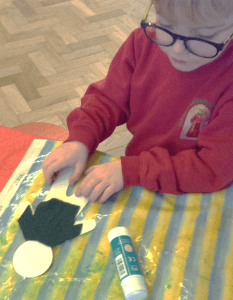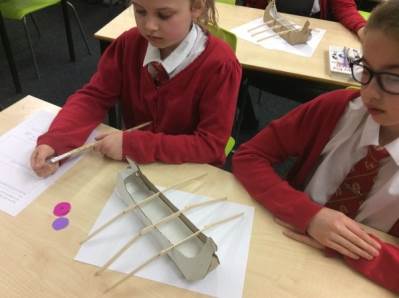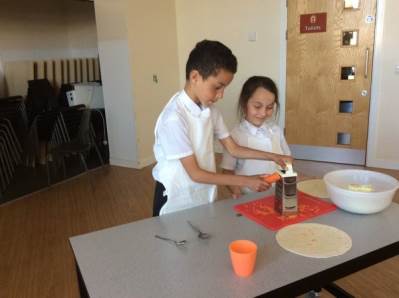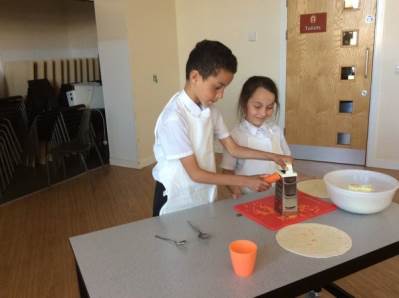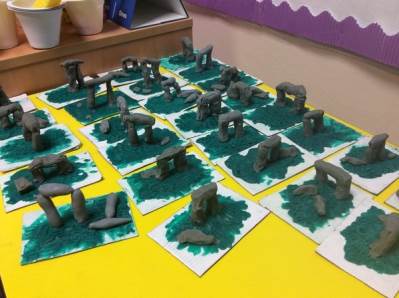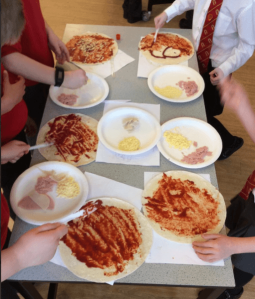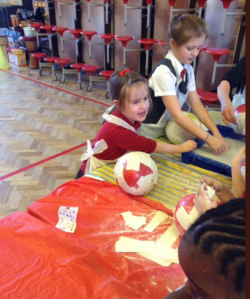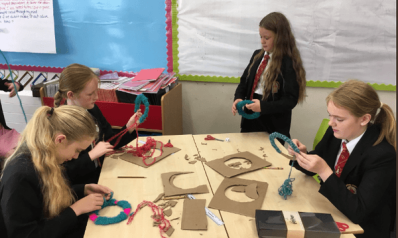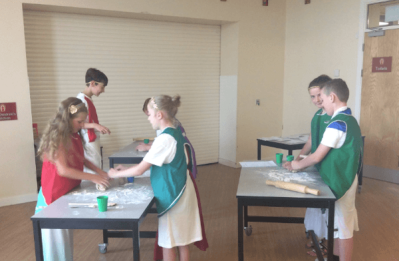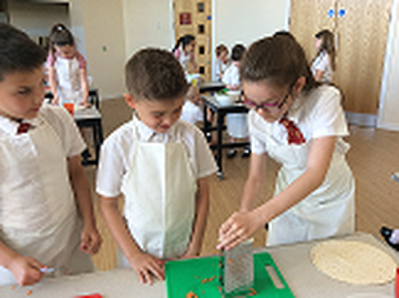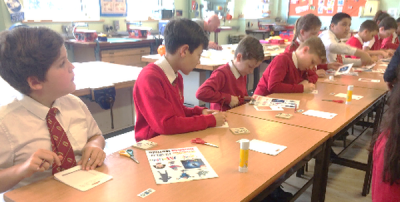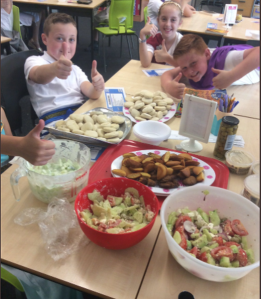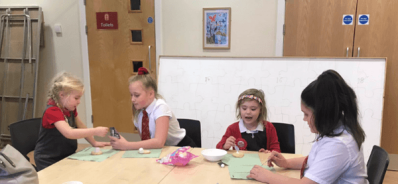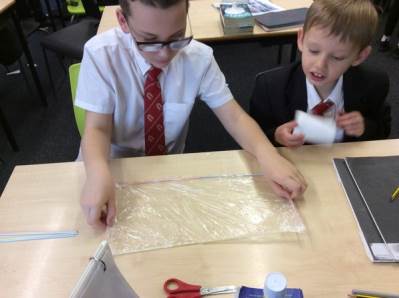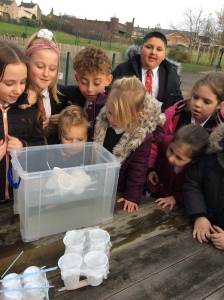“Design is not just what it looks like and feels like. Design is how it works.” - Steve Jobs.

INTENT
We want our children to be excited by Design and Technology. We want our children to be inspired by the work of others and to take this inspiration, coupled with their own imaginative ideas, their life experiences, their skills and their knowledge and use them all in their mission to design and make purposeful products. We want our children to understand that everything around us, all the products and technology that we use in our busy lives, have been designed and made and then redesigned and made again, many, many times. We want our children to understand that their own innovations might not achieve the impact they were looking for but also to understand that this is a fundamental part of being a designer ~ to constantly evaluate and improve in order to make products that deliver and satisfy the very purpose they were designed for.
IMPLEMENTATION
At St Francis, the teaching and implementation of Design and Technology is based on the National Curriculum. Themes for each year’s Design and Technology curriculum, including Food Technology, are linked to other topics in the Long Term Plan. Design and Technology projects, including Food Technology, are delivered in at least three half-terms during the school year. Projects are currently delivered in different ways; either through a series of weekly Design and Technology sessions or split over two consecutive afternoons or lasting for a whole day in each of the designated half-terms.
Our children ‘design’ for different contexts, users and purposes and they communicate their thoughts and intentions to others through sketches, mock-ups and the scrutiny of materials. Through the ‘making’ element they plan their approach before demonstrating a variety of practical skills and techniques. In the ‘evaluating’ process they scrutinise the products of others already in existence. They scrutinise their own products and make comparisons, weighing up the quality of their designs, their manufacturing and the fitness for purpose of their products. They develop and extend their understanding and technical knowledge about how things work.
In the ‘cooking and nutrition’ element children find out where food comes from. They understand the importance of eating a healthy and balanced diet and they learn how to prepare (and cook) ingredients safely and hygienically. All of these elements are delivered in every project (or menu) for every year group and year after year our children are expected to improve on their knowledge and performance in seeing their designs (and menus) materialise.
Children in Foundation Stage follow the EYFS curriculum. A mixture of focussed and independent activities arise from planning around themes, and also from the children’s own imagination, experience and interests. Activities of a creative nature in EYFS consistently require the use of practical skills and techniques. Children have access to expertise, tools and other resources during provision time on a daily basis. Children are assessed within ‘Physical Development: Moving and Handling’ for their ability to handle tools and equipment effectively. In ‘Physical Development: Health and self-care’ children have to know about the
importance of a healthy diet to maintain good health and they can talk about ways to keep healthy and safe. Children are also assessed within ‘Expressive arts and design: Exploring and using media and materials’ for being able to safely use and explore a variety of materials, tools and techniques, experimenting with colour, design, texture, form and function. Progress for each of the above areas of learning and development is tracked through many observations and videos and assessment levels are updated termly in accordance with the school’s monitoring and assessment calendar. The majority of our children will succeed and leave Foundation Stage having achieved their Early Learning Goals.
IMPACT
Children participate in a wide range of DT topics that link and support other areas of the curriculum. Each topic is carefully designed alongside the national curriculum and using a progression document. This ensures that children are both able to complete enjoyable and exciting DT lessons and are able to build and develop their skills in DT over their time at St Francis. This approach means they are prepared to undertake further learning in high school DT lessons and equips them with life skills that are necessary in an ever-increasing technological world.
Children’s attainment in DT is monitored by the class teacher, evidenced in DT books and is recorded using a DT progress tracker. This informs the DT subject leader of any areas of the DT curriculum that require further development, pupil support and staff training. Children in EYFS work on their DT skills in their provision settings. EYFS children’s progress and attainment is monitored by their teachers and informs the subject lead of their skill level.
Design & Technology







